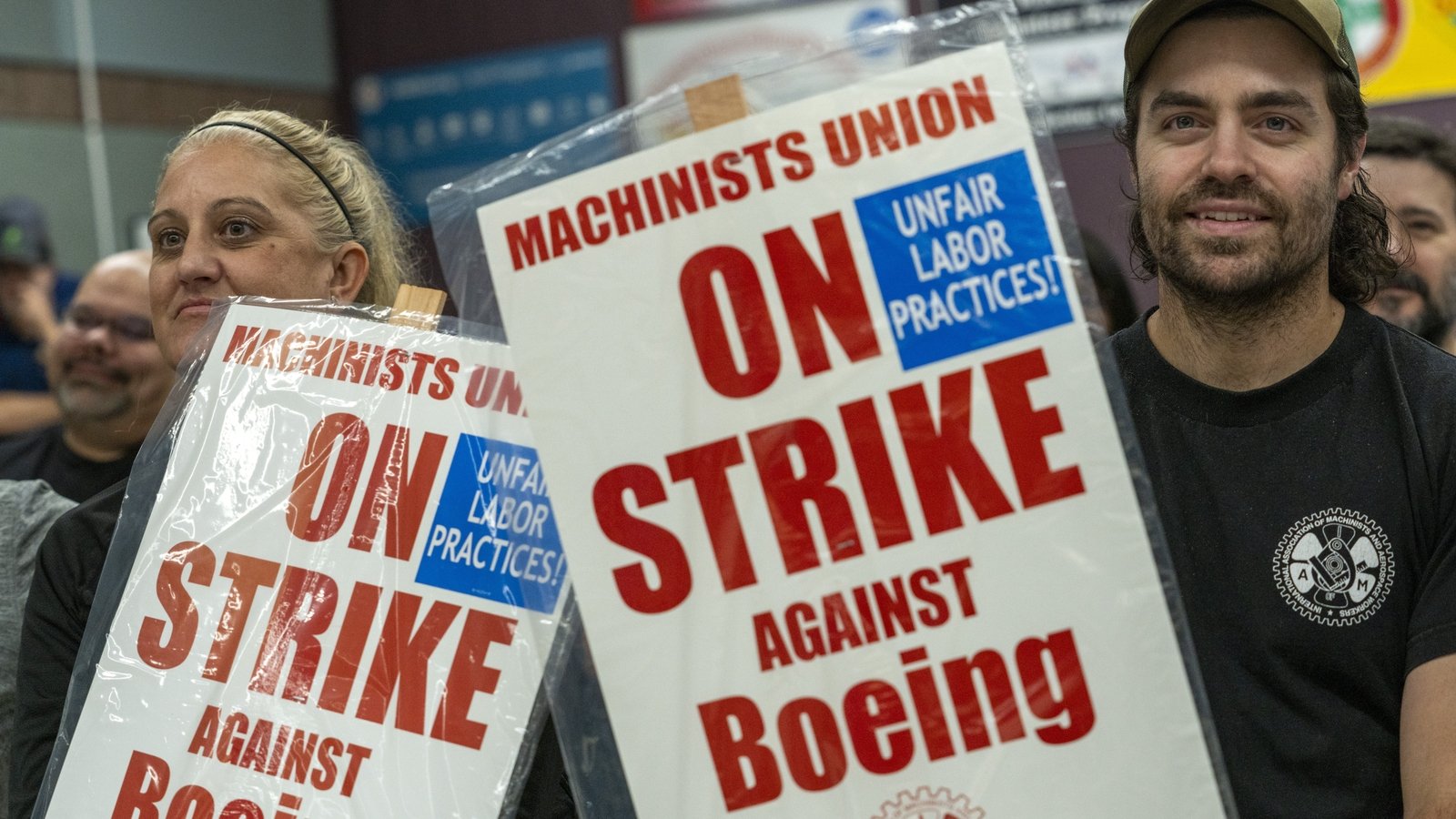Boeing factory workers have voted to reject a contract offer and continue a more than five-week strike, in a blow to new CEO Kelly Ortberg’s plan to shore up the finances of the struggling planemaker.
The vote was 64% in opposition to the deal, which offered a 35% rise in wages over four years, in a major setback for Ortberg who took the top job in August on a pledge to work more closely with factory workers than his predecessors.
The rejection of Boeing’s offer, which comes after 95% of workers voted against a first contract last month, reflects years of resentment from workers who felt cheated by the company in talks a decade ago and deepens a financial crisis.
After the vote, union leaders said they were ready to immediately resume negotiations with Boeing on the first major negotiation since 2014, when the company used the threat of moving production of the new version of the 777 out of the region to push through a deal that ended traditional pensions.
The union has been seeking a 40% pay rise and the return of the defined-benefit pension.
Boeing factory workers were also venting frustration after a decade when their wages have lagged inflation and critics have complained that the planemaker spent tens of billions of dollars on share buybacks and paid out record executive bonuses.
“This membership has gone through a lot – there are some deep wounds,” the union’s lead contract negotiator Jon Holden told reporters after the vote.
“I want to get back to the table. Boeing needs to come to the table as well. Hopefully, we can have some fruitful discussions with the company, and Mr. Ortberg, to try and resolve this,” he added.
Boeing declined comment on the vote.
Some 33,000 machinists downed tools in Boeing’s West Coast factories on September 13, halting production of the best-selling 737 MAX as well as 767 and 777 wide-body programmes.
Time is running out for Boeing, historically the largest US exporter, and its biggest union to reach a deal before the busy political period surrounding the presidential election on November 5.
With Boeing and IAM at a stalemate earlier this month, acting US Secretary of Labor Julie Su had helped get the latest offer presented for a vote after attending in-person talks with both parties in Seattle last week.
Holden said after the union vote that he would reach out to the White House to see if the union could get more assistance negotiating with Boeing.
“After the first contract offer was rejected, the honeymoon was over on the labour reset. This further validates that,” said Scott Hamilton, an aviation consultant.
“It’s bad news for everybody – Boeing, labour, suppliers, customers, even the national economy.”
Boeing is the largest customer for a US aerospace supply chain already facing critical financial pressure.
Fuselage supplier Spirit AeroSystems warned that if the strike continued beyond the end of November, there would be layoffs and more drastic furloughs.
The company, which is in the process of being taken over by Boeing, has already announced a 21-day furlough for 700 workers.
Boeing has announced plans to cut 17,000 jobs and is closing in on a plan to raise up to $15 billion from investors to help preserve its investment grade credit rating, while some airlines have had to trim schedules due to aircraft delivery delays.
Ortberg warned this week there was no quick fix for the ailing planemaker.
In a quarterly earnings call, Boeing forecast it would burn cash during 2025. Jefferies analyst Sheila Kahyaoglu said after the vote that the decision to prolong the strike could worsen the expected drain on cash.
The spectre of a quality crisis from a January mid-air panel blowout hangs over Boeing.
Richard Aboulafia, managing director of AeroDynamic Advisory, said this was now the “defining moment” of Ortberg’s short tenure and he needed to get a deal across the line soon.
“There’s a feeling that he hasn’t handled this as well as he might have,” Aboulafia said. “They’ve (Boeing) got to get this done, and they’re in a position of weakness.”
The rejection from workers yesterday was the second in a formal vote after the offer of a 25% pay rise over four years was rejected last month, leading to the strike.
Voting figures showed the two sides getting closer to a deal but still a solid majority in favour of prolonging the strike.

